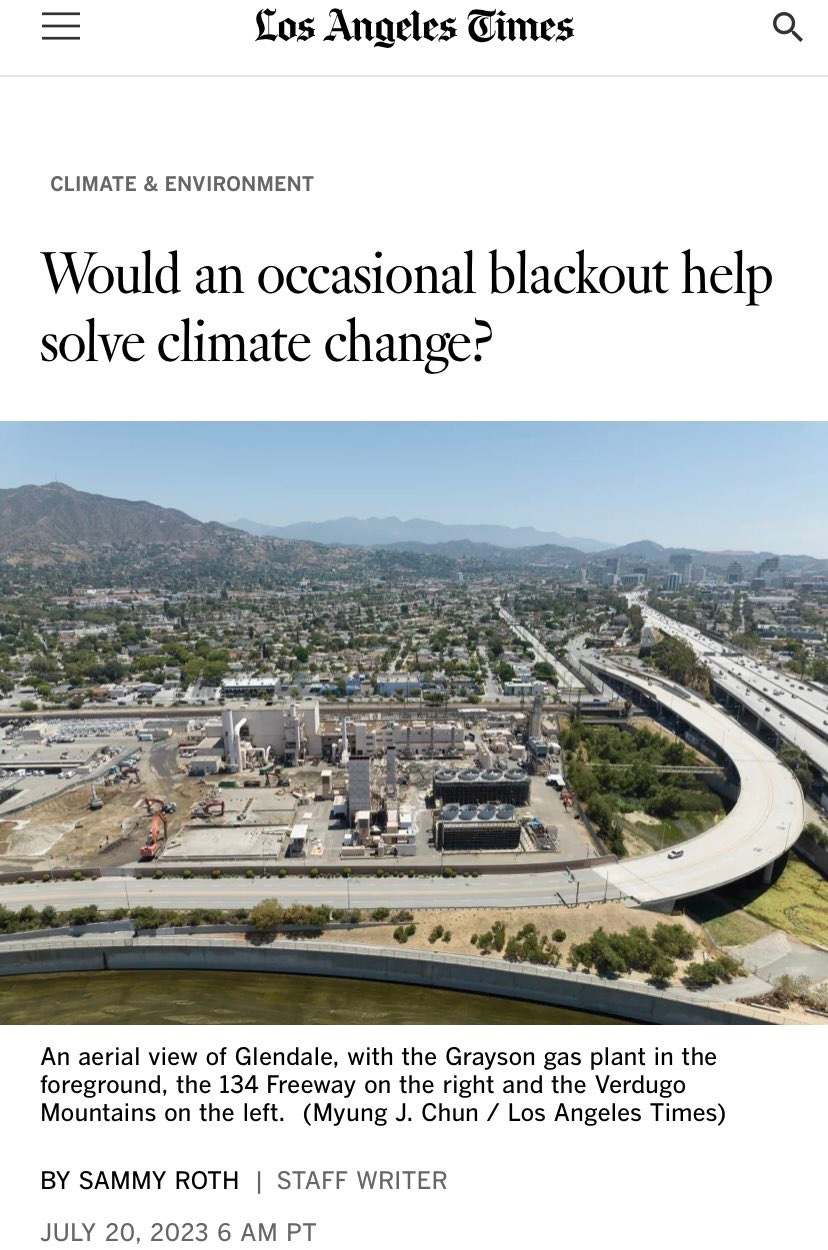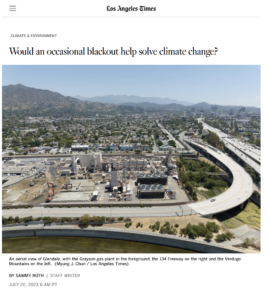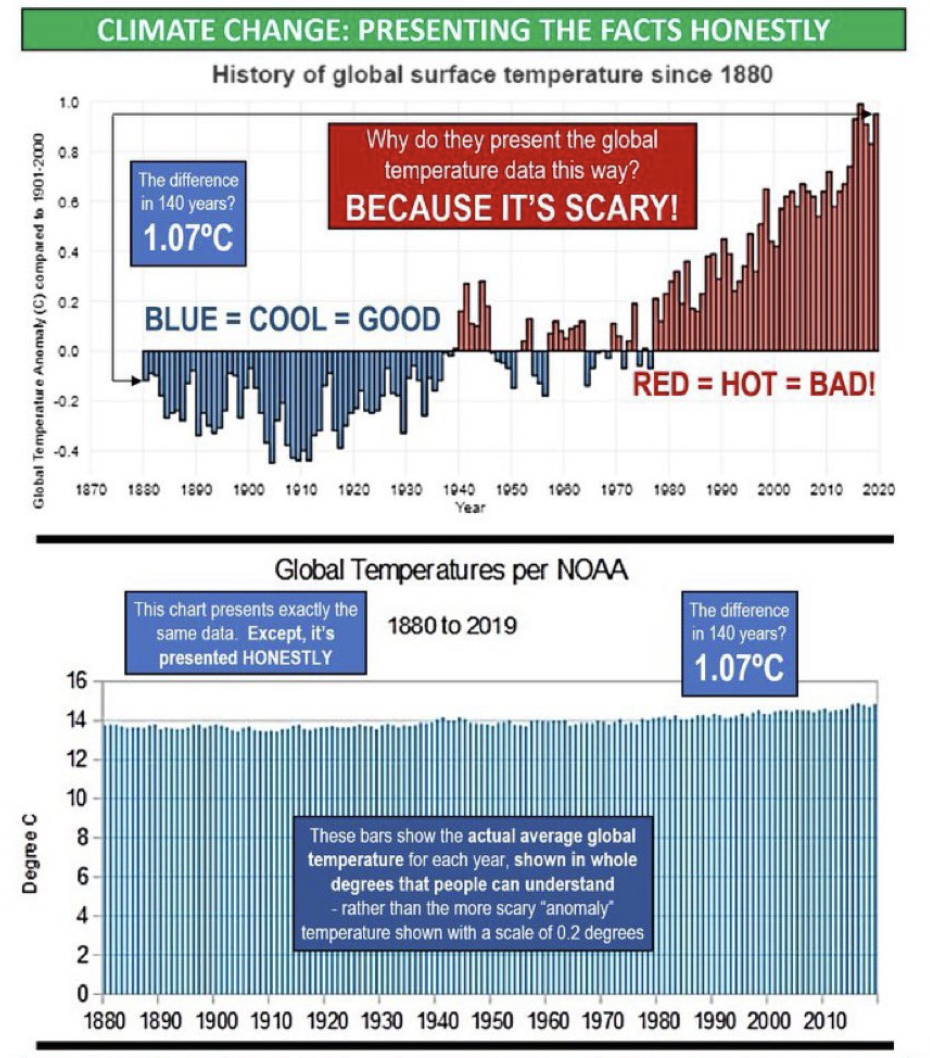BY SAMMY ROTH – STAFF WRITER
What’s more important: Keeping the lights on 24 hours a day, 365 days a year, or solving the climate crisis?
That is in many ways a terrible question, for reasons I’ll discuss shortly. …
It’s a highly technical dispute. But it’s part of a larger conversation about how much blackout risk we consider acceptable in modern society — and whether our expectations should evolve in the name of preventing climate catastrophe.

That conversation kicked into high gear in August 2020, when California found itself short on electricity during a heat wave. Just under half a million homes and businesses lost power for as little as 15 minutes and as long as 2½ hours on a Friday evening, when high temperatures kept Californians blasting their air conditioners even as the sun went down and solar farms stopped producing power. The following evening, another 321,000 utility customers went dark for anywhere from eight to 90 minutes.
The rolling outages were short and contained, relatively speaking. But the political reaction was swift and dramatic.
Gov. Gavin Newsom — facing a recall effort and wanting to avoid the fate of his predecessor Gray Davis, who was voted out of office after an energy crisis — suspended air-quality rules to make it easier to run polluting backup generators. The next summer, Newsom issued a similar order preemptively allowing gas plants to exceed air-pollution limits during electric-grid emergencies.
…
Gas plants, meanwhile, supplied 42% of California’s electricity last year, according to a federal tally. And in a great irony of the climate era, increasingly extreme weather driven by fossil fuels has made those gas plants more valuable than ever.
But absent major breakthroughs in carbon-capture technology, we’ll eventually need to shutter most if not all of those gas plants to avoid disastrous temperature jumps. Scientists say we need to cut carbon pollution nearly in half by 2030.
…
Could we get started ditching gas sooner — and save some money — by accepting a few more blackouts for the next few years?
It’s a heretical question in power-grid circles. When I posed it to John Moura — director of reliability assessment and performance analysis at the North American Electric Reliability Corp. — he only half-jokingly described it as “a dagger to the heart.” …
After reporting on clean energy for most of the last decade, I’ve increasingly come to the conclusion that solving climate change will require sacrifices — even if only small ones — for the sake of the greater good. Those might include lifestyle changes such as driving less or eating less meat. They might also include accepting that large-scale solar farms will destroy some wildlife habitat, and that rooftop solar panels — despite their higher costs — have an important role to play in cleaning up the grid.
…
Maybe learning to live with more power outages shouldn’t be one of those sacrifices.
But at the same time, we might not have a choice.
…
The idea of accepting a less dependable electric grid “is uncomfortable for a lot of people, because they correctly point out you may end up in situations where the wealthier you are, the more you’re able to buy your way out of that reliability problem,” Grubert said.
That’s why it’s crucial, Grubert said, for government to be ready to protect society’s most vulnerable when it’s hot and the power goes out. That could include investing in a wider network of cooling centers, with transportation to help people get there.
…
Nearly everyone I interviewed for this story, for instance, highlighted the value of “flexible demand” programs that shift electricity use away from the highest demand times. Families comfortable with 81-degree indoor temperatures, for instance, could get paid to turn up the thermostat a few degrees on the hottest evenings. People with electric cars could be incentivized to charge at a lower cost overnight. Big factories could be required to cut back during stressful moments on the grid.
Eric Hittinger, a public policy professor at Rochester Institute of Technology, said those types of programs could allow gas plants to fire up a lot less — even if we keep some of them around a few more decades to help during the hottest heat spells.




